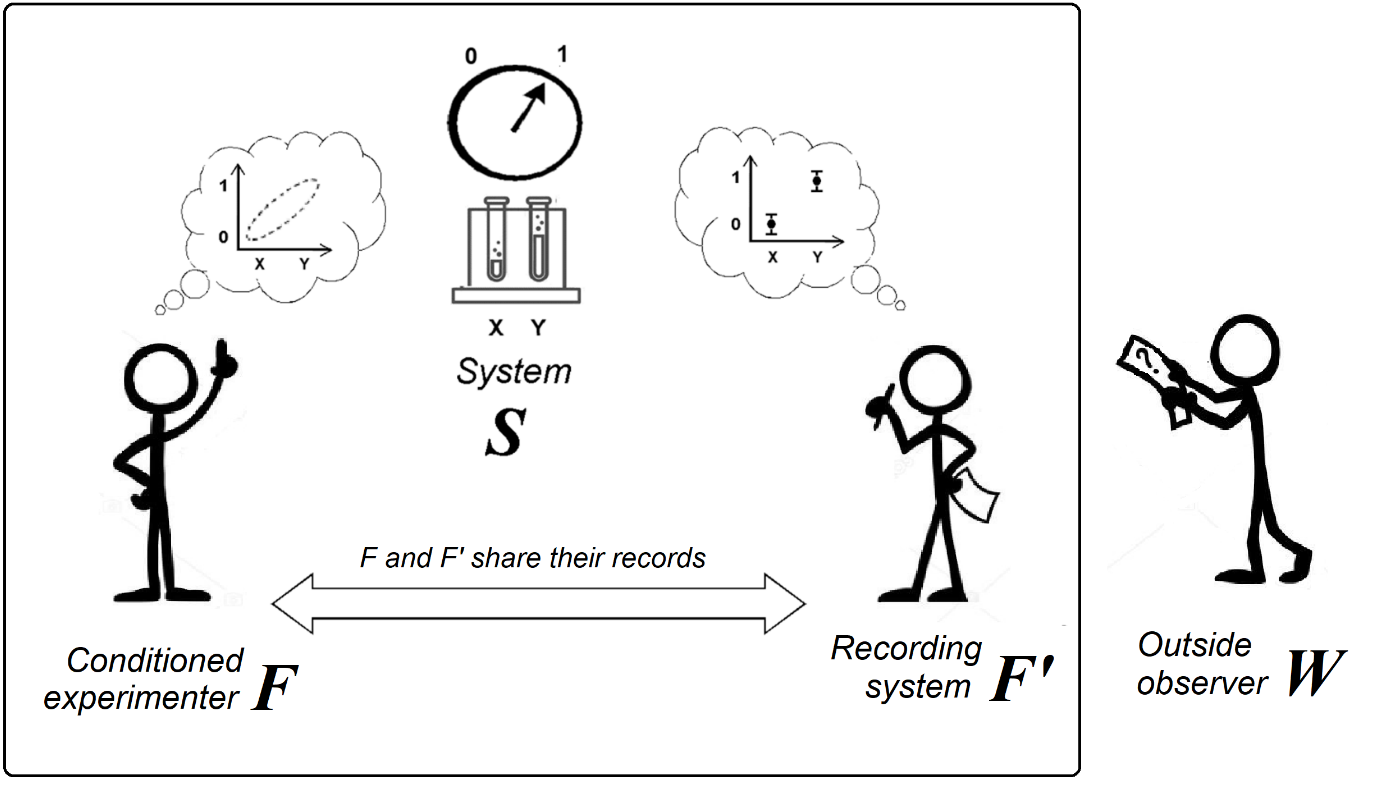The “memory of water” experiments suggested the existence of molecular-like effects without molecules. Although no convincing evidence of modifications of water – specific of biologically-active molecules – has been reported up to now, consistent changes of biological systems were nevertheless recorded. We propose an alternate explanation based on classical conditioning of the experimenter. Using a probabilistic model, we describe not only the biological system, but also the experimenter engaged in an elementary dose-response experiment. We assume that during conventional experiments involving genuine biologically-active molecules, the experimenter is involuntarily conditioned to expect a pattern, namely a relationship between descriptions (or “labels”) of experimental conditions and corresponding biological system states. The model predicts that the conditioned experimenter could continue to record the learned pattern even in the absence of the initial cause, namely the biologically-active molecules. The phenomenon is self-sustained because the observation of the expected pattern reinforces the initial conditioning. A necessary requirement is the use of a system submitted to random fluctuations with autocorrelated successive states (no forced return to the initial position). The relationship recorded by the conditioned experimenter is, however, not causal in this model because blind experiments with an “outside” supervisor lead to a loss of correlations (i.e., system states randomly associated to “labels”). In conclusion, this psychophysical model allows explaining the results of “memory of water” experiments without referring to water or another local cause. It could be extended to other scientific fields in biology, medicine and psychology when suspecting an experimenter effect.

